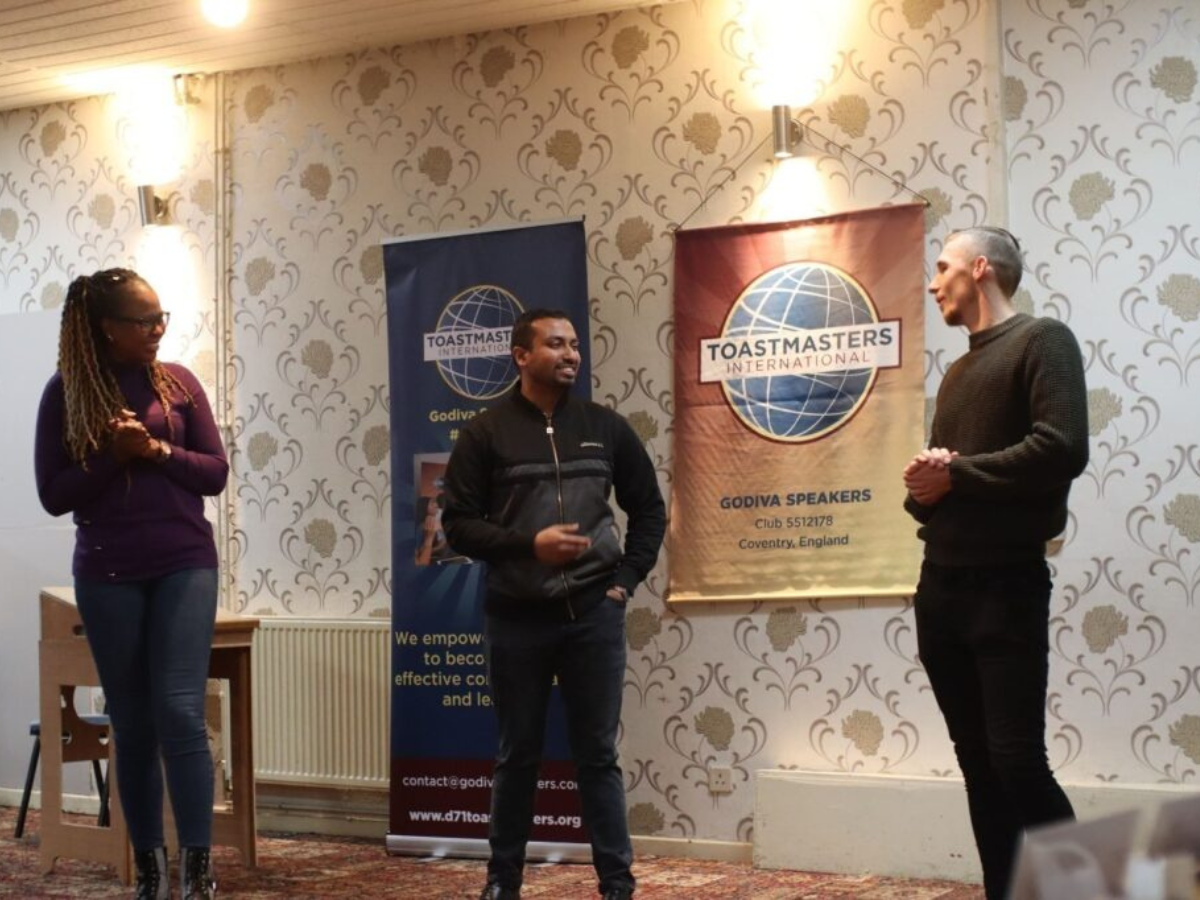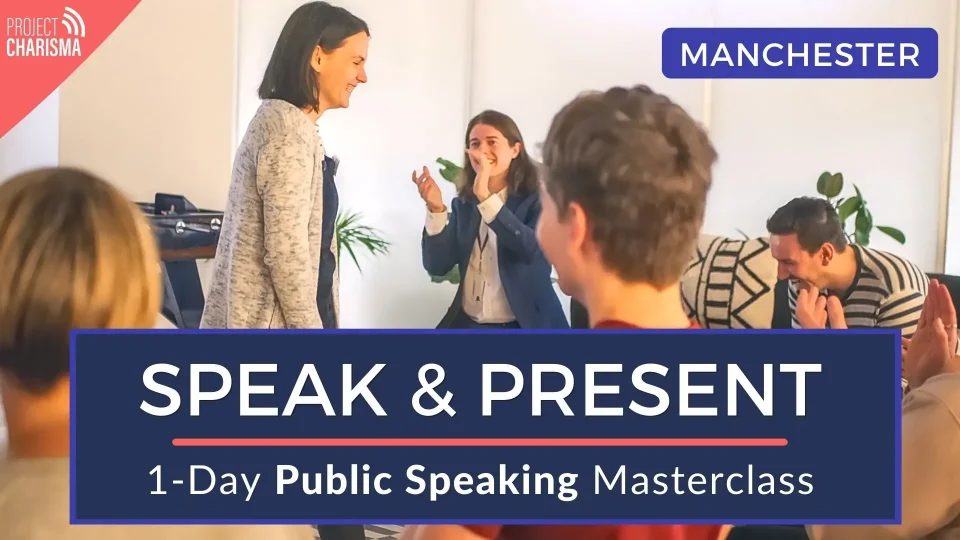10 Things I Hate About Toastmasters

Danny Riley
5 min read
What you’ll learn:
- 10 specific reasons why Toastmasters may not be for everyone.
- A behind-the-scenes look at the Toastmasters experience.
- The politics, problems, and people involved in Toastmasters.

Toastmasters is often described as a "love-hate" relationship.
After six years as a Toastmasters member, I made great friends, built confidence, and gained leadership skills.
I even rose to the position of club President, served as an Area Director, and achieved the Distinguished Toastmaster designation, the highest educational award within Toastmasters.
But in 2019, I decided to climb new self-development mountains, and haven’t looked back since.
I could say many good things about Toastmasters, which you can read in my other article: 10 Things I love about Toastmasters.
But it also came with many frustrations. If you’re considering joining, or you’re just curious about what it’s really like, here are ten things I hate about Toastmasters.
1. The One-Time Speeches
If you want to master a specific speech — whether for a business presentation or a wedding toast — repetition is key.
However, the Toastmaster’s programme encourages members to constantly deliver new speeches, rather than refining and perfecting one.
Toastmasters are big on entertainment and humour, so repeated business speeches draw disdain from audiences and evaluators alike.
2. The Politics
Toastmasters is about more than just public speaking. It’s also a leadership training ground.
The organisation’s slogan is, “Where Leaders Are Made.”
But as you climb the leadership ladder, you might encounter the less glamorous side of leadership: short staffing, committee conflicts, and even occasional backstabbing.
Some members hold onto their positions like personal fiefdoms, making it difficult for new members to advance.
If you’re looking for a straightforward public speaking club, the politics can be a major downside.
Ready to speak with confidence?
Explore our training options...
3. Toastmasters Prepares You... to Be a Toastmaster
Toastmasters is great for building confidence and honing public speaking basics, but it has its own unique culture and style.
Toastmasters’ speeches often follow a strict formula, and the audiences tend to reward a certain type of speaker. It’s easy to fall into an overly flamboyant and larger than life delivery.
While you’ll become a proficient speaker within the club, you might find that Toastmasters’ style doesn’t translate well to real-world audiences. Toastmasters will make you a great Toastmaster, not necessarily a great speaker.
At Project Charisma, we help speakers find their authentic style, and learn to communicate in the most effective way for your real-world speaking scenarios — not just fellow Toastmasters.
4. The Awards.
Watch the World Championship of Public Speaking, and you’ll notice a formula: Toastmasters tend to reward speeches that follow a specific pattern.
There are strict guidelines for movement, vocal variety, and gestures. This “one-size-fits-all” approach can stifle creativity and make speakers feel like they need to fit a mould.
If you prefer to develop a more unique speaking style, the rigid structure of Toastmasters may feel limiting.
5. The Time Commitment
If you have six years of your life to devote to the art of public speaking and leadership, then Toastmasters is for you.
Between weekly meetings, committee responsibilities, and various events, Toastmasters can easily consume several hours a week. Progress is often slow, taking months or even years, as each 2-hour meeting only gives you a few minutes to get the speaking reps in.
If you’re looking for quick, intensive public speaking training, you might find the pace frustrating. Toastmasters is designed for gradual, long-term growth, rather than rapid skill acquisition, so be prepared for a significant commitment.
6. The Cliques and Social Dynamics
I’ll be the first to admit that I fell into this camp.
When I joined my first club, hardly anyone was a member. So, as the club grew in numbers, I knew everyone in it. Making friends at Toastmasters is easy.
Hardly anywhere in the world can you be in a conversation with four people, and they all are from different countries. But guests can feel like they’ve walked into an “old boys’ club”.
While Toastmasters is a friendly environment, it can also be difficult for newcomers to break in.
7. The Evaluations
A big part of Toastmasters is in the evaluations.
An Evaluator evaluates your speeches; the Evaluators and Speakers are watched by Ah Counters, Timekeepers, and Grammarians; and a General Evaluator evaluates everyone.
But the quality of evaluations can be hit-or-miss. In fact, you’ll be lucky to get someone who has delivered a speech themselves. The feedback often focuses on the same basic speaking habits, such as using more of the stage or using more volume.
If you’re seeking expert feedback tailored to professional settings, you might find Toastmasters’ evaluations a bit superficial.
8. The Ah Counter
Toastmasters places a strong emphasis on eliminating filler words like “um” and “uh,” and the Ah Counter role is dedicated to tracking these.
While reducing filler words is important, this obsessive focus can be overbearing.
You can be subject to a grilling based on the number of times you said ‘like’ or ‘so’ during your unprepared 2-minute talk. You’ll be reprimanded for:
- Ums and ahs, or so’s and like’s
- Hands in your pocket
- Not enough eye-contact
- The absence of wild gestures
Toastmasters treats filler words as a cardinal sin, which can distract from the more important aspects of public speaking, like engaging content and emotional connection.
9. The Over-Polish
In Toastmasters, there’s an emphasis on “polish” that can sometimes go overboard. Body language, for example, is scrutinised to the point where it feels artificial.
In real-world settings, effective speakers are often natural and conversational, but Toastmasters can make you feel like you need to be a theatrical performer, overly emphasising each point and gesture to the absurd.
If you want to develop an authentic speaking style, you may find the Toastmasters’ emphasis on polish a bit much.
10. Toastmasters’ Cult-ish Atmosphere
Toastmasters members are inviting, charming, helpful, and highly motivated to get you to sign up.
Not because they are incentivised, but because they are true advocates of what Toastmasters has done for them.
This atmosphere, while supportive, can sometimes feel a bit cultish. You may find yourself drawn into the Toastmasters world and its hierarchy before you realize it.
Let me be clear: I was a proud and happy member for six years. There are no secrets, except the gossip between cliquey members, and you’re free to leave at any time (but that’s what all cults tell you).
Some clues point to Toastmasters being a cult, however.
- The hero-worship of Ralph C. Smedley, who founded the club.
- The insistence you say “Mr. Toastmaster, fellow members, and welcome guests”.
- The banners and artefacts such as a gavel used during meetings to keep ‘order’.
- The hierarchy of leadership that you’re unaware of until you join as a member.
But if Toastmasters is a cult, it’s the best cult out there. I loved being a Toastmaster and felt warm and uplifted in every meeting.
The Brighter Side of Toastmasters
Despite these frustrations, I loved being a Toastmaster, and I wouldn’t trade the experience for anything. I’ve written another article about the things I love about Toastmasters, because there are plenty of positives to balance the negatives.
The friendships, the personal growth, and the confidence I gained have been invaluable. But I eventually left to explore other paths for self-development.
In the future, I might join again, but I think that will be when I’ve retired and have enough time to spare.
If you’re looking to develop public speaking skills without the politics, time commitment, and structured approach of Toastmasters, we offer practical, intensive training that will help you engage any audience with authenticity and confidence.
Ready to take your public speaking skills to the next level?
Explore our training options today and see what a difference personalised coaching can make.

